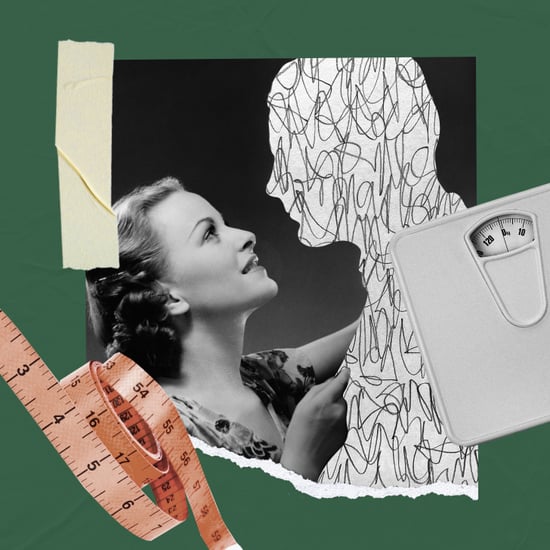How to Start Intermittent Fasting
If You Want to Try Intermittent Fasting to Lose Weight, Do These 7 Things
You've been hearing so much about intermittent fasting (IF) and all the benefits — including weight loss, reduced sugar cravings, more energy, improved mental focus, better digestion, and disease prevention — and you're psyched to give it a try. Here's what you need to know about how to start intermittent fasting so you can do it safely and have the greatest success.

Get the Green Light
Before beginning this new eating lifestyle, it's best to get the a-OK approval from your doctor. If it's been a while, now's a good time to have some bloodwork done, get an all-around checkup, and chat with your practitioner about your plan, and make sure they're on board with you doing it. Aside from feeling good about knowing that you're healthy enough to start IF, it'll be great to go back for a follow-up appointment and be able to compare your blood pressure, cholesterol, weight, and other numbers to see how much they've improved.
Pick a Plan
Just because the 5:2 plan worked for your dad, doesn't mean it's the best plan for you. Research all the protocols including 16:8 (Leangains), Alternate Day Fasting, and the Warrior Diet, and find the one that best suits your lifestyle, and one that is sustainable. There is no one plan that's best, or the most-effective — it's whichever plan is best for you.
Take a Look at Your Diet
Although one of the benefits of intermittent fasting is the flexibility and the leniency it allows in being able to eat what you want and to eat larger meals in one sitting, you're not going to feel very well if you fill your eating window up with crap.
So before you even think about intermittent fasting, take some time to clean up your diet. Focus on eating whole foods including healthy fats, enough protein, and complex carbs, and limiting the processed carbs and sugar. This will make your transition to IF so much easier, because if you're fueling properly during your eating window, you won't feel hungry or low-energy when you're fasting.
Start Off Slow
Even if you're a jump-straight-in-the-pool kind of person, it's better to take a one-step-at-a-time approach when intermittent fasting. If you go from eating three meals and three snacks a day to eating only 500 calories a day (5:2 plan), you're more likely to have terrible side effects including headaches, dizziness, crankiness, hanger, and even nausea.
There's no rush! Take several weeks to ease into the plan you've chosen. If you're especially hungry on a certain day, or not feeling well, or expecting your period, listen to your body and eat if you need to. You may also need to modify your workout routine in the beginning — hunger from intense workouts will make it much harder to stick to your plan.
Helpful Tips in Dealing With Hunger
You will feel hungry, but there are ways to deal with it to make it easier to handle.
- Keep in mind the reason you are fasting: If you summon that big reason when hunger pangs strike, you can just embrace them — a positive attitude goes a long way. For example, if weight loss is your goal, those hunger pangs will just remind you that your body is getting the fuel it needs from your stored fat.
- Drink tons of water! Staying hydrated will help prevent hunger as well as the headaches dehydration can cause. When you're hungry, pound 12 ounces of water and it helps fill you up.
- Caffeine is another faster's friend: Go for black coffee or green tea. Herbal tea and sparkling water are other zero-calorie drinks that can help curb hunger. Just stay away from the zero-calorie sodas and other beverages made with artificial sweeteners.
- Keep busy: Working, taking a walk, doing a hobby, spending time with friends, cleaning the house — doing anything that occupies your brain away from food is a plus!
- Stay away from food: When you first start out fasting, the temptation to eat is HUGE. Don't make it harder by grocery shopping, walking past your favourite bakery, fasting during your friend's birthday dinner, or preparing food for other people. With time, your mental willpower will strengthen, but at first, go with the motto, "If I don't see it, I can't eat it."
Avoid This Mistake
It's natural that after feeling so hungry and "deprived" while fasting, that once your eating window begins, you're going to want to gorge yourself with all your favourite foods. Eating too much too soon is bound to make you feel sick, cause bloating and worse digestive issues, and, like me, will end up causing weight gain.
Have your first meal planned out, so the minute your eating window begins, you'll have a healthy, perfectly-portioned meal waiting for you. Make sure it includes your favourite foods so you're not left feeling unsatisfied.
Track Your Progress
Keep a journal and write down your thoughts, how you feel emotionally and physically, and you can also track your weight here if you hop on the scale. Take photos at the beginning of your journey, too. Sometimes it won't seem like your body composition is changing, but when you look back at a photo from a few months ago, you'll be able to notice how far you've come.





